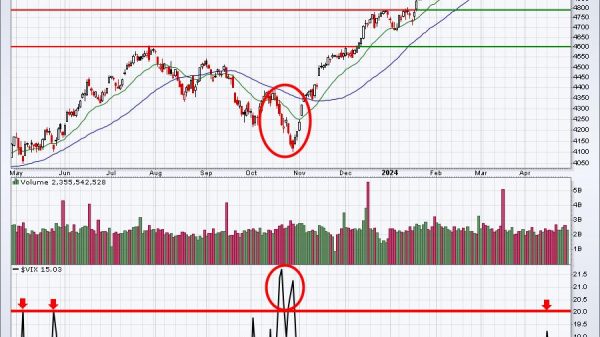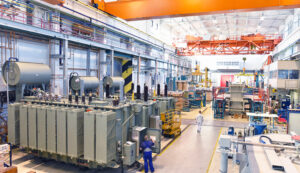Factories are suffering one of their sharpest declines in activity in a decade and a half as higher interest rates and a downturn in global demand squeeze output.
The final purchasing managers’ index for the manufacturing sector, published by S&P Global and the Chartered Institute of Procurement & Supply, edged up to 44.3 in September, from 43 in August. Although an improvement, the reading is well below the 50-point threshold that separates growth from contraction.
Last month’s figure was revised up from an earlier estimate of 44.2 and was a two-month high.
The reduction in export demand was caused by greater uncertainty over the health of the global economy. The report noted that lower spending in Europe, the United States, China and Brazil had resulted in new orders for British exports falling for the 20th month in a row. Softer demand led manufacturers to shed workers at the second steepest rate in the past year.
Rob Dobson, senior economist and director at S&P Global Market Intelligence, said: “The cost-of-living crisis and the recent rapid rise in interest rates are taking their toll, according to producers, raising the possibility of the broader UK economy slipping back into contraction during the second half of the year.”
The Bank of England has lifted its base interest rate to a 15-year high of 5.25 per cent, but there is a mounting expectation that it could be the peak after the central bank paused its rate rises last month.
Manufacturing represents a much smaller share of the country’s economic output than the services sector, meaning that its downturn may not “be quite powerful enough for the whole economy to go into a recession”, Samuel Tombs, at Pantheon Macroeconomics, the consultancy, said. The services PMI dropped last month to 47.2, its lowest point in 32 months, according to an earlier flash estimate.
Further evidence has emerged indicating that inflation will continue to ease. Raw materials prices have declined at one of the quickest rates over the past seven years, which should help to drag the consumer prices index down further from its present level of 6.7 per cent.
A separate survey revealed that Europe’s manufacturing sector had been plagued by recession over the summer, with Germany, the bloc’s largest economy, leading the downturn. The Hamburg Commercial Bank eurozone manufacturing final purchasing managers’ index, compiled by S&P Global, slipped to 43.4 in September, from 43.5 in August. The reading was unrevised from an initial estimate.
Tighter interest rates globally as central banks seek to rein in inflation, combined with greater economic uncertainty, have knocked demand, with engineering suffering one of the sharpest falls in eurozone new factory orders since the PMI surveys began in 1997.
That reduction in sales prompted factories to release workers at the quickest pace in almost three years, according to the latest reading.
Cyrus de la Rubia, chief economist at Hamburg Commercial Bank, said: “The output PMI was well under 50 for the entire third quarter, so we are feeling pretty certain that the recession in manufacturing continued during this period.”
Germany’s manufacturing PMI was among the weakest performers in the common currency area at 39.6, worse than an earlier estimate. However, that was up slightly from 39.1 in August.
Higher raw materials costs, fierce competition from elsewhere and tighter monetary policy have cast doubt over the viability of Germany’s heavily export-dependent economic model. The Organisation for Economic Co-operation and Development group of leading nations thinks it will be the only G7 economy to shrink this year.
The manufacturing PMI in the United States reached a ten-month high of 49 in September, up from 47.6.
Read more:
Worst factory output fall in 15 years





















